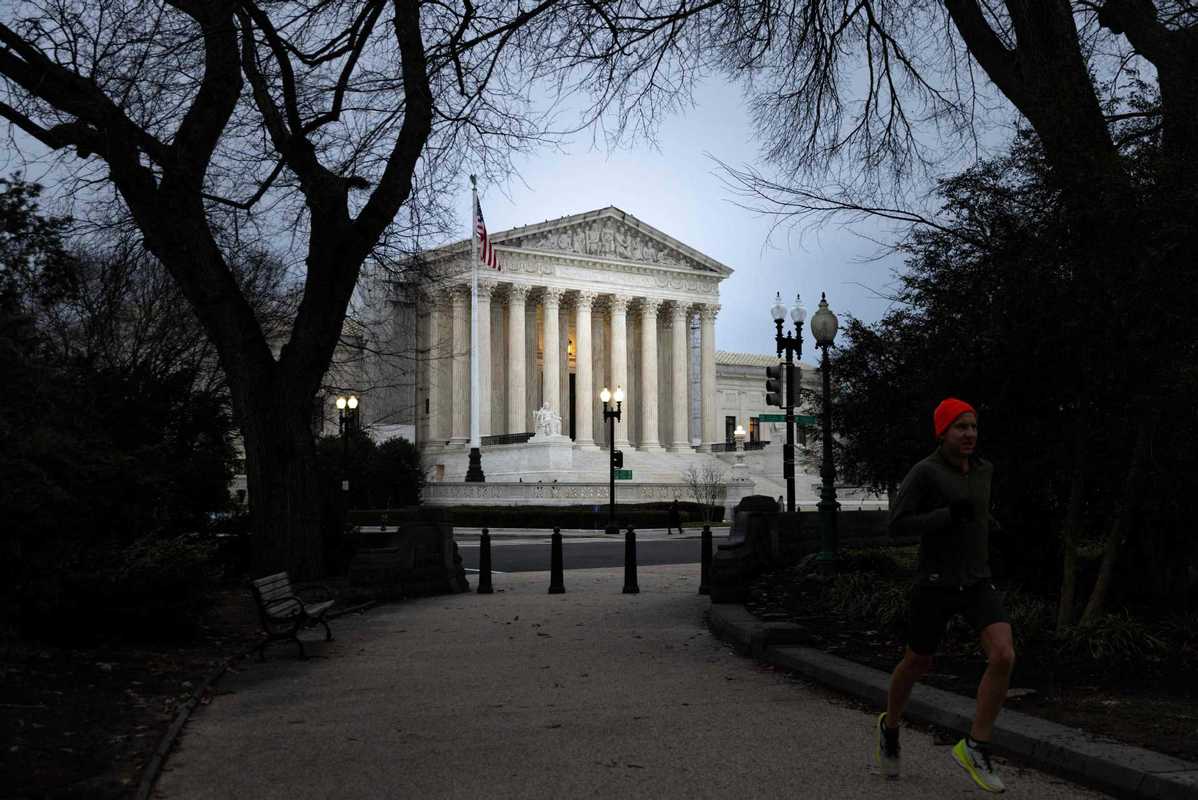US politicians' China rhetoric called empty


On the growing accusations and tougher rhetoric against China by US politicians heading into the 2024 elections, an observer said they are idle threats in a "silly season".
"People can say whatever they want during campaigns, but what they are able to accomplish when they are actually in a position to implement their claims is subject to a reality factor," William Jones, the Washington Bureau chief of Executive Intelligence Review, said in an interview with China Daily.
The US Central Intelligence Agency (CIA) Director William Burns described China as "the bigger long-term threat" in his article published Jan 30 in Foreign Affairs, the official publication of the Council on Foreign Relations (CFR). He revealed that the CIA has "committed substantially more resources toward China-related intelligence collection, operations, and analysis around the world — more than doubling the percentage of our overall budget focused on China over just the last two years".
"Thank him for reminding us," Wang Wenbin, spokesman for China's Foreign Ministry, replied to Burns' opinion article, adding that the CIA chief had revealed that its "spies are everywhere" and that, "China will take precautions as usual and will not allow the US to get its way through illegal moves."
Jones said that the intelligence community and the American political elite generally adhere to the policy that the US is the world's policeman and that the "intelligence branch" has to provide the military arm with competent information.
He pointed out that "the fundamental fallacy underlying this policy" is that the US government sees China as a primary rival and must counter it. "This has sent clear signals to China that the US does have 'double standards', one for the hegemon, and one for everybody else," said Jones. "At the same time, the US has a terrible time keeping up with their so-called 'special status' given that China, a most populous nation, is rapidly developing a growing middle class and a sizable science and technology capability, a capability that may eventually rival or exceed that of the United States in the near future."
FBI Director Christopher Wray last week warned that "Chinese hackers" are preparing to "wreak havoc and cause real-world harm to the US" at a US congressional hearing.
Jones said that Wray's statement "falls into the phony narrative about how China wants to bring down the US economy" as well as "plays into some of the prejudices of many of our badly misinformed members of Congress, who are happy to hear their worst fears confirmed by the 'proper authorities'", and "this also allows the FBI chief to get the money".
"I think the statements by Bill Burns and Christopher Wray have more to do with the fact that things are simply not going their way," said Jones. "Immigration will probably be the number one issue in the upcoming presidential debates if it continues to be a Trump-Biden contest.
"The issue of China, however, has already surfaced, as Trump is now calling for 60 percent tariffs on Chinese goods," Jones said. "There is also the war in Ukraine and the situation in the Middle East, which will without a doubt play a major role, particularly the Ukraine war. These issues will probably become the hot topics of debate, but China will be a close second."
Former US president Donald Trump, the leading contender for the Republican nomination, noted in an interview earlier this month that he would impose tariffs of more than 60 percent on Chinese exports to the US if elected.
Jones said that the former president's claim was "questionable", although Trump may believe what he says.
In Jones' analysis, with the present inflationary prices on basic commodities like food and other essentials, 60 percent tariffs on Chinese goods, many of which are sold at Walmart and Costco, would lead to "skyrocketing prices", and poor people are the worst affected. "Trump has had a good record in reducing goods on the market, but a very poor one in being able to produce them," he added.
These tough talks about China, Jones said, may not affect policy in the short term, as "everybody knows that the presidential campaign in the US is always 'silly season', where candidates can say whatever they please without having to back it up with action". However, "as they are very public affairs, they inevitably resonate in the overall political milieu and can cause occasional tremor".
Jones said that he was hoping for a relatively "soft landing" afterward. "If the US began to view China more as a friend than a rival, perhaps we could get back to work fixing the real problems here at home rather than wasting time and effort on punishing 'rivals'," he said.































